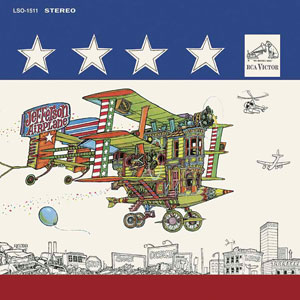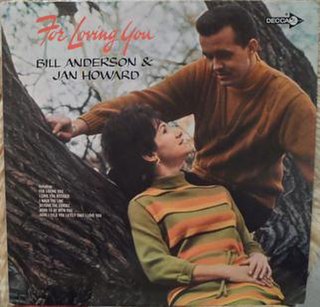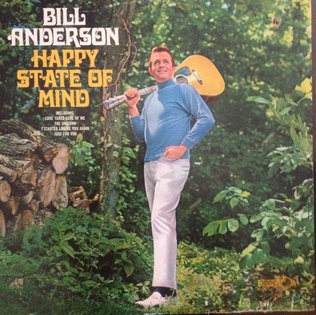
Commodores, often billed as the Commodores, are an American funk and soul group. The group's most successful period was in the late 1970s and early 1980s when Lionel Richie was the co-lead singer.

Ian Scott Anderson is a British musician best known for his work as the singer, flautist, acoustic guitarist, primary songwriter, and sole continuous member of the rock band Jethro Tull. He is a multi-instrumentalist who also plays harmonica, keyboards, bass guitar, bouzouki, balalaika, saxophone and a variety of whistles. His solo work began with Walk into Light in 1983; since then he has released another five albums, including the sequel to the 1972 Jethro Tull album Thick as a Brick, titled TaaB 2: Whatever Happened to Gerald Bostock? (2012).
Showcase or vitrine most often refers to:

Alan Price is an English musician who first found prominence as the original keyboardist of the English rock band the Animals. He left the band in 1965 to form the Alan Price Set; his hit singles with and without the group include "Simon Smith and the Amazing Dancing Bear", "The House That Jack Built", "Rosetta" and "Jarrow Song". Price is also known for work in film and television, taking occasional acting roles and composing the soundtrack of Lindsay Anderson's film O Lucky Man! (1973). He was inducted into the Rock and Roll Hall of Fame in 1994 as a member of the Animals.

The Yes Album is the third studio album by English progressive rock band Yes, released on 19 February 1971 by Atlantic Records. It was the band's first album to feature guitarist Steve Howe, who replaced Peter Banks in 1970, as well as their last to feature keyboardist Tony Kaye until 1983's 90125.

James William Anderson III, known professionally as Bill Anderson, is an American country music singer, songwriter, and television host. His soft-spoken singing voice was given the nickname "Whispering Bill" by music critics and writers. As a songwriter, his compositions have been covered by various music artists since the late 1950s, including Ray Price and George Strait.
Signs of Life may refer to:

After Bathing at Baxter's is the third studio album by the San Francisco psychedelic rock band Jefferson Airplane, released in 1967 as RCA Victor LSO-1511 (stereo) and LOP-1511 (mono). The cover art is by artist Ron Cobb.

Steven Noel Wariner is an American country music singer, songwriter, and guitarist. Initially a backing musician for Dottie West, he also worked with Bob Luman and Chet Atkins before beginning a solo career in the late 1970s. He has released eighteen studio albums and over fifty singles for several different record labels.
Holy man is a person, usually an ascetic, who is exceptionally pious or religious.

"Rumble" is an instrumental by American group Link Wray & His Wray Men. Released in the United States on March 31, 1958, as a single, "Rumble" utilized the techniques of distortion and tremolo, then largely unexplored in rock and roll.

The Duke of Iron was a calypsonian, nightclub and concert entertainer, and recording artist from the 1930s through the 1960s. Born in Trinidad and working mainly in the United States, he was renowned for his bawdy humor, crisp diction, and confident vocal mannerisms. His clarity in pronouncing English lyrics helped him achieve tremendous popularity with American audiences.
"Wild Week-End" is a single by American country music artist Bill Anderson. Released in March 1968, it was the first single from his album Wild Weekend. The song peaked at number 2 on the Billboard Hot Country Singles chart. It also reached number 1 on the RPM Country Tracks chart in Canada.
"Wild Weekend" is an instrumental written by Phil Todaro and Tom Shannon and performed by The Rebels, later known as The Rockin' Rebels.
Hawaii Five-O or Hawaii Five-0 may refer to:

For Loving You is a studio album released by the American country music artists Bill Anderson and Jan Howard in February 1968 on Decca Records. The album was their first collaborative album, setting the trend for a series of studio albums over the next few years. The album's title track, "For Loving You", was the lead single and became a number 1 hit on the Billboard country songs chart.

Wild Weekend is a studio album by American country singer-songwriter Bill Anderson. It was released in May 1968 on Decca Records and was produced by Owen Bradley. The record was Anderson's ninth studio release to be issued during his recording career. It reached peak positions on the Billboard country albums chart and also produced two singles that became major hits.

Happy State of Mind is a studio album by American country singer-songwriter Bill Anderson. It was released in September 1968 on Decca Records and was produced by Owen Bradley. Anderson's tenth studio recording, it was also his second studio album released in 1968. Among the songs included on the release was the title track, which became a major hit in both the United States and Canada.

Bill Anderson Sings for "All the Lonely Women in the World" is a studio album by American country singer-songwriter Bill Anderson. It was released in May 1972 on Decca Records and was produced by Owen Bradley. It was Anderson's nineteenth studio recording to be released during his music career. The album included one song that became a major hit for him in 1972, the title track. The album would also reach positions on national music charts at the time.
"Get While the Gettin's Good" is a song written by Ted Cooper and Steve Karliski. It was first recorded by American country singer-songwriter Bill Anderson. It was released as a single in 1967 via Decca Records and became a major hit.












